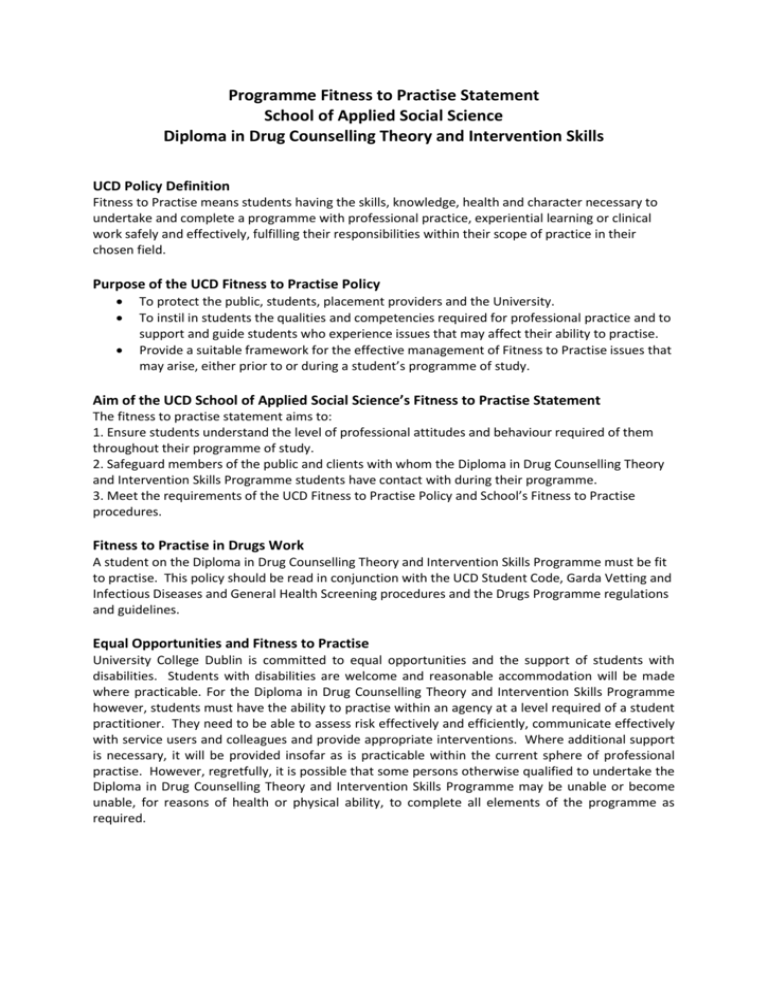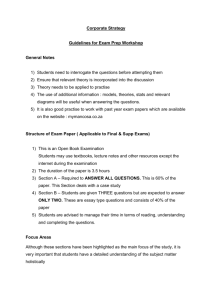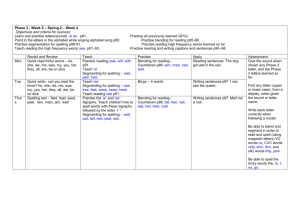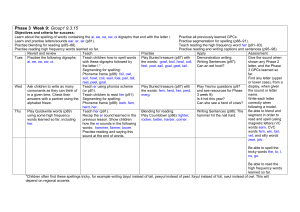Programme Fitness to Practise Statement School of Applied Social
advertisement

Programme Fitness to Practise Statement School of Applied Social Science Diploma in Drug Counselling Theory and Intervention Skills UCD Policy Definition Fitness to Practise means students having the skills, knowledge, health and character necessary to undertake and complete a programme with professional practice, experiential learning or clinical work safely and effectively, fulfilling their responsibilities within their scope of practice in their chosen field. Purpose of the UCD Fitness to Practise Policy To protect the public, students, placement providers and the University. To instil in students the qualities and competencies required for professional practice and to support and guide students who experience issues that may affect their ability to practise. Provide a suitable framework for the effective management of Fitness to Practise issues that may arise, either prior to or during a student’s programme of study. Aim of the UCD School of Applied Social Science’s Fitness to Practise Statement The fitness to practise statement aims to: 1. Ensure students understand the level of professional attitudes and behaviour required of them throughout their programme of study. 2. Safeguard members of the public and clients with whom the Diploma in Drug Counselling Theory and Intervention Skills Programme students have contact with during their programme. 3. Meet the requirements of the UCD Fitness to Practise Policy and School’s Fitness to Practise procedures. Fitness to Practise in Drugs Work A student on the Diploma in Drug Counselling Theory and Intervention Skills Programme must be fit to practise. This policy should be read in conjunction with the UCD Student Code, Garda Vetting and Infectious Diseases and General Health Screening procedures and the Drugs Programme regulations and guidelines. Equal Opportunities and Fitness to Practise University College Dublin is committed to equal opportunities and the support of students with disabilities. Students with disabilities are welcome and reasonable accommodation will be made where practicable. For the Diploma in Drug Counselling Theory and Intervention Skills Programme however, students must have the ability to practise within an agency at a level required of a student practitioner. They need to be able to assess risk effectively and efficiently, communicate effectively with service users and colleagues and provide appropriate interventions. Where additional support is necessary, it will be provided insofar as is practicable within the current sphere of professional practise. However, regretfully, it is possible that some persons otherwise qualified to undertake the Diploma in Drug Counselling Theory and Intervention Skills Programme may be unable or become unable, for reasons of health or physical ability, to complete all elements of the programme as required. Examples of concerns or circumstances which might render a student unfit to practise (these are not exclusive) A criminal conviction, charge or caution of a serious nature that arises just prior to or during the course of study. Substance misuse that affects study, work or the work environment. Aggressive, violent or threatening behaviour. Persistent inappropriate attitude or behaviour such as poor time management, frequent non-attendance, poor communication, failure to accept and follow educational advice, failure to follow health and safety requirements or the regulations of the School or University. Impaired judgement which would place clients at risk and which persists despite intervention and supervision by academic staff and/or practice teachers. Lack of competence which persists despite intervention and supervision by academic staff and/or practice teachers. Unprofessional behaviour or attitude such a breach of confidentiality, harassment, bullying or unlawful discrimination. Untreated or unacknowledged physical or mental health conditions that impair a person’s ability to practise. As stated above, UCD is committed to equal opportunities and the support of students with disabilities. However, a fitness to practise issue could arise due to failure to follow medical treatment or other support, refusal to follow medical advice or care plans including monitoring and reviews in relation to fitness to practise and failure to recognise limits and abilities or lack of insight into health concerns. Any other issue which would place clients or colleagues at risk. Fitness to practise issues can arise at any stage during a student’s time on a course of study within the Diploma in Drug Counselling Theory and Intervention Skills Programme. It is important to note that such issues may be temporary and/or satisfactorily dealt with during the programme of study. However, fitness to practise issues may affect the ability of students to complete the programme, or gain the final qualification. Where such an issue or issues arise, the UCD Student Fitness to Practise Procedures and Guidelines will be adhered to in resolving the situation. Student Declaration All students applying for and entering the designated programme as well as relevant academic and administrative staff will be fully briefed on the Fitness to Practise Policy and related procedures through the Course Handbook, and this Policy. Students are required to read this Policy and acknowledge in writing that they have read and understood the Programme’s Fitness to Practise Policy and procedures prior to commencing year one of the Diploma in Drug Counselling Theory and Intervention Skills Programme.








